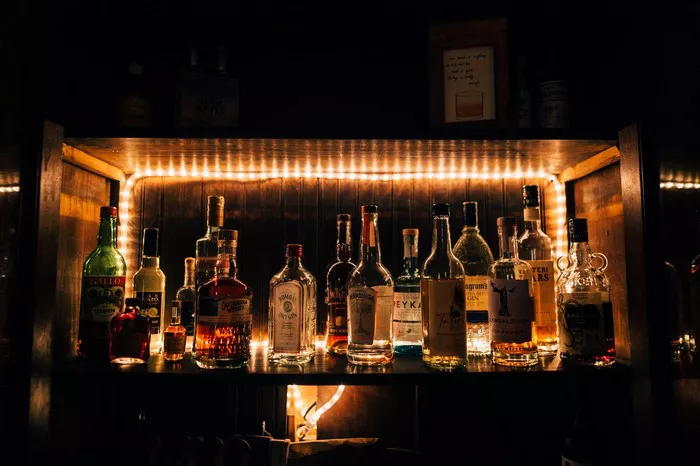Sparkling wine, known for its effervescence and celebratory nature, captivates many with its bubbles and unique taste. Whether it’s Champagne, Prosecco, Cava, or other sparkling varieties, a common query among wine enthusiasts is, “How long will sparkling wine last?” Understanding the shelf life of sparkling wine involves various factors such as the type of wine, storage conditions, and the effects of aging. Let’s delve into this intriguing aspect of sparkling wines to unravel the mysteries behind their longevity and quality.
Factors Affecting the Longevity of Sparkling Wine
The duration of how long sparkling wine will last can differ significantly based on several elements. The primary determinants include the type of sparkling wine, the winemaking process, the bottle’s closure, storage conditions, and the aging potential of the specific wine.
Type of Sparkling Wine
Different types of sparkling wines have varying lifespans. For instance, Champagne, a renowned sparkling wine, is often aged longer before release compared to other sparkling wines like Prosecco or Cava. This extended aging period typically contributes to Champagne’s ability to age gracefully and maintain its quality for a more extended period.
Winemaking Process
The method used to produce sparkling wine significantly impacts its longevity. Traditional methods like the Méthode Champenoise involve a lengthier process of secondary fermentation in the bottle, leading to a more complex structure and longer aging potential. Conversely, other methods like the Charmat method used in making Prosecco tend to produce wines meant for earlier consumption, with a shorter aging potential.
Bottle Closure and Sealing
The closure of the bottle plays a vital role in preserving the wine’s freshness and effervescence. Cork closures, commonly used in traditional sparkling wines like Champagne, allow for gradual aging by letting in minuscule amounts of oxygen. This controlled oxygen exchange can positively influence the wine’s development over time. Conversely, crown caps or other closures used in some sparkling wines can limit oxygen ingress, often preserving the wine in its youthful state, suitable for early consumption.
Storage Conditions
The environment in which sparkling wine is stored significantly impacts its longevity. Factors such as temperature, light exposure, humidity levels, and bottle positioning play crucial roles. Sparkling wines should ideally be stored in a cool, dark place with consistent temperatures, avoiding fluctuations that can affect the wine’s quality. Improper storage can hasten the wine’s aging process, potentially diminishing its quality sooner than expected.
Effects of Aging on Sparkling Wine
Aging can bring forth various changes in sparkling wine, influencing its flavor profile, aroma, and overall characteristics. Some sparkling wines benefit from aging, developing more complex flavors and aromas, while others are best enjoyed young to preserve their fresh and fruity attributes.
Champagne: An Age-Worthy Sparkling Wine
Champagne stands out as a prime example of a sparkling wine renowned for its aging potential. Properly stored vintage Champagnes can develop exquisite tertiary aromas like toastiness, nuttiness, and honeyed notes over time. Non-vintage Champagnes, while designed for earlier consumption, can also benefit from short-term aging, typically up to 3-5 years, enhancing their flavor complexity.
Prosecco and Other Varieties
In contrast to Champagne, Prosecco is generally crafted for immediate consumption, emphasizing its youthful, fruity characteristics. Most Proseccos are best enjoyed within a year or two of their release to savor their fresh fruit flavors and floral aromas. Other sparkling wines like Cava, Crémant, or sparkling rosés also have varying aging potentials, with some meant for early consumption and others capable of aging gracefully for several years.
Storage Tips to Extend Sparkling Wine’s Lifespan
To maximize the lifespan of sparkling wine and maintain its quality, proper storage is paramount. Here are some essential tips:
Temperature Control: Store sparkling wine at a consistent temperature, ideally between 45-65°F (7-18°C), avoiding extreme fluctuations.
Avoid Light Exposure: Keep bottles away from direct sunlight or strong artificial light, as UV rays can degrade the wine.
Horizontal Storage: Store bottles horizontally to keep the cork moist and prevent it from drying out, aiding in proper aging.
Stable Environment: Maintain a stable environment with moderate humidity levels to prevent label damage and cork deterioration.
Limited Movement: Minimize vibrations and movement to allow the wine to settle and age undisturbed.
Signs of Deterioration
Despite the care taken in storage, sparkling wines can eventually degrade due to various factors. Signs of a deteriorating sparkling wine include a flattened effervescence, altered color (especially in white wines turning darker), and off-putting aromas or flavors, indicating oxidation or microbial spoilage. Once these signs manifest, the wine’s quality may have diminished, affecting its taste and appeal.
Conclusion
The lifespan of sparkling wine varies considerably depending on factors such as wine type, winemaking techniques, storage conditions, and aging potential. While some sparkling wines like Champagne exhibit impressive aging capabilities, others are crafted for immediate enjoyment. By understanding these factors and following proper storage practices, wine enthusiasts can extend the lifespan of their sparkling wines and enjoy them at their peak. So, the next time the question arises, “How long will sparkling wine last?” remember, each bottle has its unique journey, and proper care can enhance its longevity and tasting experience. Cheers to the effervescent pleasures sparkling wine brings, whether enjoyed young or aged to perfection.


